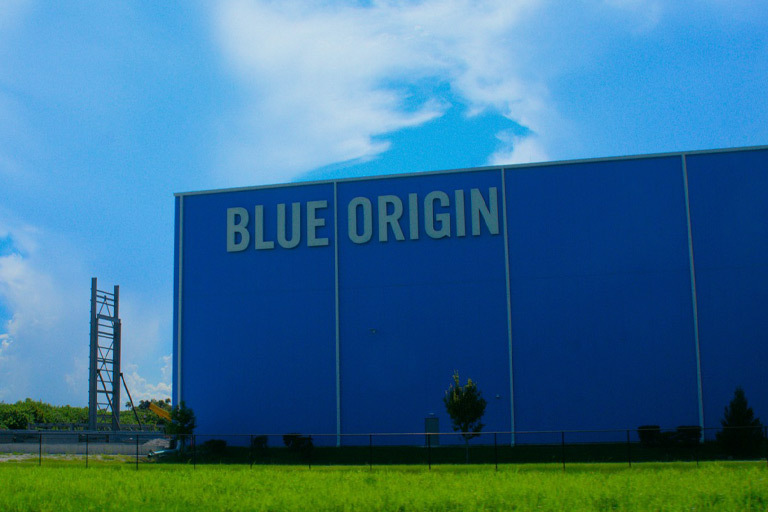Blue Origin, the space exploration company established by Jeff Bezos, is preparing for the upcoming launch of its first orbital rocket, New Glenn, marking a significant milestone in the competitive commercial space industry. This launch further escalates the ongoing rivalry between Bezos and Elon Musk’s SpaceX.
The rocket is set to lift off from Cape Canaveral Space Force Station in Florida at 1:00 am on Wednesday, with a backup window available on Friday, according to a Federal Aviation Administration advisory. Although Blue Origin has yet to officially confirm the date, excitement has been growing after a successful engine test in late December.
The inaugural mission, NG-1, will carry a prototype spacecraft called Blue Ring, funded by the US Department of Defense. This spacecraft is designed as a versatile satellite deployment platform and will remain on the second stage of the rocket for a six-hour test flight.
This launch marks Blue Origin’s entry into the highly competitive orbital launch sector, expanding beyond its prior success with the New Shepard rocket, which has conducted suborbital missions carrying passengers and payloads to the edge of space.
Space industry analyst Laura Forczyk pointed out that the true market for space exploration lies in orbital missions, as suborbital flights offer limited payload capacity and attract fewer customers.
The successful launch of New Glenn will further elevate the competition between Bezos, the world’s second-richest individual, and Musk, who holds the top position. SpaceX, with its Falcon 9 rockets, has established itself as the industry leader, serving clients such as NASA, the Pentagon, and commercial satellite operators.
New Glenn, named after astronaut John Glenn, is positioned to challenge SpaceX’s dominance. The 320-foot (98-meter) rocket is significantly larger than Falcon 9, which stands at 230 feet, and is designed to carry larger payloads. Its first stage will attempt a vertical sea landing on a platform humorously named “So You’re Telling Me There’s a Chance.”
The New Glenn engines, which use liquid natural gas instead of kerosene, offer a cleaner combustion process and require fewer engines. G. Scott Hubbard, a former NASA official, highlighted the importance of this competition, noting that it is a positive development for the space industry.
Blue Origin, founded in 2000, has taken a more cautious approach compared to SpaceX, which has made faster strides in the space race. While Blue Origin’s strategy has drawn some criticism, analysts emphasize the value of competition in the industry. Scott Pace, a space policy expert, stated that New Glenn will provide the US government with an additional layer of redundancy, which is crucial for ensuring reliability in space missions.
As SpaceX plans to phase out Falcon 9 in favor of its experimental Starship by the decade’s end, New Glenn’s launch could be well-timed, offering a viable alternative in an evolving market.
For Bezos, who envisions the creation of space colonies rather than focusing on Mars colonization, New Glenn marks a significant advancement. A successful mission would solidify Blue Origin’s place in the orbital launch market and reignite the rivalry with SpaceX, setting the stage for the next chapter in the commercial space race.













